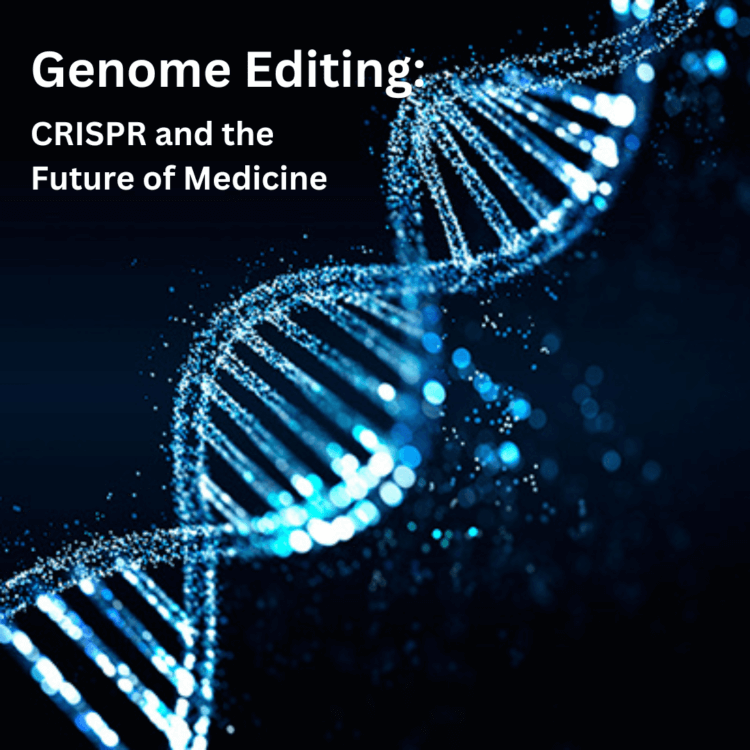Genome editing, particularly using the CRISPR-Cas9 technology, has revolutionized the field of medicine and holds tremendous promise for the future of healthcare. CRISPR (Clustered Regularly Interspaced Short Palindromic Repeats) is a powerful and precise tool that allows scientists to modify genes within an organism’s DNA. Here’s how CRISPR is shaping the future of medicine:
Treatment of Genetic Disorders
CRISPR-Cas9 enables researchers and clinicians to correct or modify genetic mutations that cause various genetic disorders. Conditions like sickle cell anemia, cystic fibrosis, and muscular dystrophy may one day be treatable through genome editing, potentially offering cures or significant improvements in quality of life for affected individuals.
Cancer Therapy
Genome editing with CRISPR is being explored as a means of developing targeted cancer therapies. Scientists can edit immune cells to better recognize and attack cancer cells, potentially leading to more effective and less toxic cancer treatments.
Infectious Disease Resistance
CRISPR can be used to engineer resistance to infectious diseases. For example, researchers have explored creating mosquitoes that are resistant to malaria or modifying human cells to be resistant to HIV infection.
Personalized Medicine
Genome editing allows for highly personalized medical treatments. By tailoring therapies to an individual’s unique genetic makeup, it is possible to improve treatment outcomes and minimize adverse effects.
Rare Disease Treatments
Many rare diseases are caused by specific genetic mutations. CRISPR-based therapies offer hope for patients with these conditions, as they can be designed to target the underlying genetic cause.
Stem Cell Therapy
CRISPR can be used to modify stem cells, potentially making them safer and more effective for regenerative medicine. This has applications in treating conditions such as Parkinson’s disease, spinal cord injuries, and heart disease.
Ethical and Safety Concerns
While CRISPR holds immense promise, it also raises ethical and safety concerns. The potential for off-target effects, unintended consequences, and the ability to edit the human germline (changes passed on to future generations) require careful consideration and regulatory oversight.
Clinical Trials and Regulation
There is ongoing research and development of CRISPR-based therapies, with many clinical trials in progress. Regulatory agencies are actively working to establish guidelines and regulations to ensure the safety and ethical use of this technology.
Global Impact
CRISPR has the potential to address health disparities and improve access to advanced medical treatments globally. However, there are challenges related to equitable access, affordability, and the distribution of benefits.
Non-Medical Applications
Beyond medicine, CRISPR has applications in agriculture, environmental conservation, and synthetic biology. It can be used to engineer crops for improved yield and resistance to pests or to develop organisms that can help address environmental challenges.
In summary, CRISPR genome editing represents a revolutionary breakthrough in medicine with the potential to treat a wide range of diseases and conditions. However, it also raises important ethical, regulatory, and safety considerations that need to be carefully addressed as this technology continues to advance. The future of medicine is likely to be significantly shaped by the continued development and application of CRISPR-based therapies and technologies.










No Comments
Leave Comment